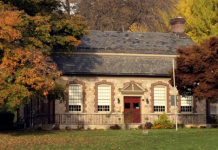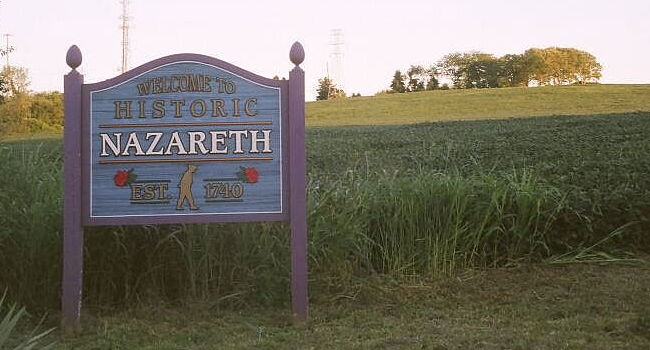Lehigh Township supervisors will have to adopt a pollution reduction plan in accordance with the Pennsylvania Department of Environmental Protection, according to Township Engineer Phil Malitsch, who notified the board at their Nov. 14 meeting.
The plan, according to Malitsch, needs to be a “program of work” that outlines how the township will reduce pollution over the next five years. The plan specifically applies to watersheds within the township, as is required under the state’s municipal separate storm sewer system (MS4) regulations.
“You now need to provide what’s called a pollution reduction plan for the watersheds that are in your township,” Malitsch said. “What it is is a program of work that the township needs to do in the next five years to meet certain requirements. Those requirements are based on two things: the watersheds that are in your township, and what the impairment of those watersheds is.”
The watersheds that the township will need to provide a plan for are the Hokendauqua Creek, Birch Creek and the Lehigh River, according to Malitsch.
“The minimum pollution reduction percentage that any township can apply to meet these requirements is 10 percent,” Malitsch said. “So of all the calculated sediment loading into a watercourse, you are responsible over the next five years to deal with 10 percent of that.”
Malitsch said that according to DEP, the current sediment loading in township watersheds is approximately 8,450,000 pounds of sediment. The 10 percent of sediment that the township is required to address over the course of the next five years comes out to 845,000 pounds of sediment.
“DEP has formulas that say for certain BMPs [best management practices] you get a certain credit of pounds of sediment that you’re remediating from this issue. So the pollution reduction plan, what it is, is a combination of different BMPs added up to meet that total requirement that you’re obligated to meet over your permit term,” Malitsch said. “We have to come up with a combination of BMPs that hit that number.”
Malitsch said that the problem for the township is how they will be able to conduct such BMPs to address the 845,000 pounds of sediment.
“The issue for you guys is that each one of these requires either work for your township maintenance department to undertake, projects that the township needs to undertake, and quite frankly, money that the township needs to spend on these projects in order to hit those requirements,” he said.
Board of Supervisors Chairman Darryl Snover questioned the potential costs of undertaking such projects, which Malitsch said will depend on what BMPs the township chooses and what methods the township will be able to handle.
Snover then voiced another concern about how DEP comes up with the percentages and totals the township must hit.
“Where do they come up with the numbers?” Snover asked.
Malitsch admitted he had little knowledge of DEP’s techniques for coming up with their percentages, which only added to Snover’s skepticism of the program.
“The only way that I can answer the question as I sit here is: I have no idea,” Malitsch said. “Everything that we do usually involves equations of some kind. How they come up with those equations I think is really the question and I don’t think that it’s very tangible.”
Snover continued to express his opposition against the state mandate, noting that the township has few avenues to pay for the pollution remediation practices, which would either require diverting funds from other areas or raising taxes on residents.
Supervisor Cindy Miller also said the township has the option of implementing a stormwater management authority, which she said would also impact taxpayers.
“That’s where municipalities are moving because they can’t afford it out of their general funds,” Miller said.
Snover was also vocal about the option of implementing a stormwater management authority, denying it outright.
“Hell no.. it’s more government. It’s the exact opposite direction that, me personally, wants to see,” he said. “We’ve got numbers that are given to us that are going to impact our taxpayers and we aren’t even privy to how they come up with these numbers in the first place.”
Supervisor Keith Hantz remained open to the idea of a stormwater management authority, as Miller noted that the township’s hands were tied after receiving an “unfunded mandate by the state.”
“The idea of an authority maybe isn’t such a bad thing,” Hantz said. “I really do think we need to keep that as an option going forward here because obviously we’re not getting out.”
In other business, the liquor license transfer hearing that was scheduled for the Nov. 14 meeting was canceled before the meeting began. Township Solicitor David Backenstoe said that Friendly Food Mart, a convenience store located at 4619 W. Mountain View Drive that was seeking the liquor license transfer, had “much zoning work to be done” before they could move forward with acquiring the license.
The next Lehigh Township Board of Supervisors meeting will take place on Tuesday, Nov. 28 at 7 p.m. at the township municipal building.








